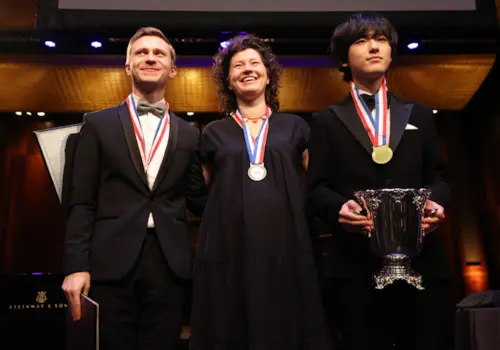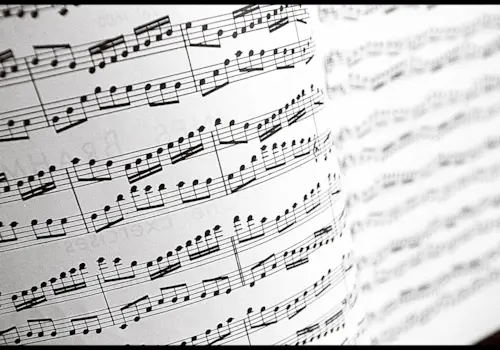RCM student Alec Coles-Aldridge looks at what makes a good accompanist.
'You may think this job sucks, when they get all the bucks, forget their lines, transpose and jump from page to page.'
These are the words of Roger Vignoles, the renowned British accompanist who has worked with musicians ranging from Kiri Te Kanawa to Thomas Allen. Vignoles immortalised these words in his composition The Battle Hymn of the Accompanist, a short piece of music reflecting on the life of an accompanist.
The lyrics touch on the thankless world of the accompanist, a world that Gerald Moore, another renowned British accompanist, concluded, barely 'notices the accompanist at all'. Moore moved on to declare that 'people think he's there just to do what he's told, to follow the singer through thick and thin. Well, there's a great deal more to it than that'.
That is certainly true. Indeed, it would be no exaggeration to state that accompanists have a similar existence to military special forces units. Their work is underappreciated and overlooked but absolutely essential. Whilst the solider is constantly rehearsing different tactical scenarios, the accompanist learns their music inside-out. When the performance is complete, the soldier returns home and their actions are largely forgotten in the midst of the larger political landscape, likewise, the accompanist returns home whilst the glories are showered on the soloist. With the plea for greater recognition now complete, the attention can turn to what makes the role of accompanist so demanding, and to what a good accompanist actually is.
Of course, the basic musical elements apply; steady tempo, observation of the key signature and fluency in performance. These are all essential. However, they are common ground across all musical disciplines. It is sensitivity that is the specialism of the accompanist. They must be supremely attentive listeners, able to detect any tempo changes and adapt their playing to suit.
Flexibility is another critical quality. With nerves, adrenaline and a multitude of other factors at play when a performance occurs, anything can happen. Memorised music can disappear, tempos suddenly increase dramatically and unexpected breathes appear. Throughout this mine-field of un-rehearsed events, the accompanist must stay calm and adapt to how the performance unfolds.
Perhaps these two qualities, sensitivity and flexibility, can be given the over-arching title of musical radar, a term used by Vignoles is his description of the telepathic nature of accompanying. This musical radar is what allows accompanists to predict how a particular entry will sound based on the soloist's breath, or to find an instantaneous solution to a verse being skipped.
Clearly, the answer to the question of what makes a good accompanist and the answer to what makes accompanying so difficult is the same: musical radar. Whilst musical radar is difficult to define empirically, its existence as the cornerstone for accompanying is undeniable. The closest comparison to musical radar can be found a long time ago in a galaxy far, far away, the Force from Star Wars. Anyone familiar with the franchise should now have a decent understanding of musical radar and for those still struggling, a quote from the Jedi Yoda should help, 'for my ally is the Force and a powerful ally it is.' Wise words for any accompanists.
By Alec Coles-Aldridge. Alec is a student at the Royal College of Music studying for a Bachelor of Music Degree.







